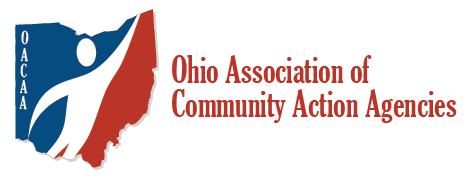Lyndon B. Johnson coined the phrase “The War on Poverty” when he signed into law The Economic Opportunity Act of 1964. It was an instantly recognized phrase that was meant to represent a national effort to eliminate poverty. After successfully reducing the national poverty rate from 26% to 15% in the first two years, the resources to fight were drastically reduced, and the rapid victories ended. However, the nonprofit Community Action Network along with our allies, employers and partners have continued to win individual battles against poverty for families and individuals.
There isn’t one answer that can explain poverty and its causes. Throughout my 25+ years in this network, I’ve seen great strides made in the lives of many. But economics is not stagnant. While we help a family with little income overcome their issues, a middle-class family may suffer a job loss or an extraordinary medical cost or one or more of several economic problems, and find themselves forced into the poverty trap. Being forced to choose between medical costs, child care or car maintenance often leads to the loss of a job which often leads to poverty.
Often poverty discussions assume there is a certain group of people who can be affected by poverty. That is entirely wrong as poverty can be an issue for almost anyone who is forced into unemployment or making those terrible choices of heating their home, eating healthy, maintaining their vehicle, finding quality childcare, and other real life expenses. “Those people” can be you. The alleviation of poverty means two things: help people in poverty get out, and help people who are not in poverty maintain their healthy status.
Rep. Brad Wenstrup (R-OH) recently published a blog recognizing challenges that many low-income families and individuals face when they lose benefits because their income increases—a barrier that is commonly known throughout the social services field as the “benefits cliff.” He is exactly right when he says, “(n)o one in need of assistance should be penalized for taking a job or advancing in their job.” The idea of phasing out government assistance as people move up the economic ladder is something we have advocated for several years. We are very grateful that the Republicans in Congress have this on their agenda.
I commend Rep. Wenstrup and other House Republicans for considering this important issue in the A Better Way plan. As he stated, “Hard work, success, and personal achievement should be recognized and rewarded, not serve as a barrier.” And this is what the Community Action Network has been working toward for the past 52 years—when LBJ recognized that local communities must work together with people in poverty. It was then that ideas like Head Start were set in motion to give low-income children a stronger foundation for learning, and when communities began listening to people in poverty to learn their unique barriers.
We look forward to working with Rep. Wenstrup and all members of the House and Congress to keep winning our battles, strengthening individuals, families, communities and our nation.
Philip E. Cole has been the Executive Director of the Ohio Association of Community Action Agencies (OACAA) since 1989. Throughout his career, he has been nationally recognized for his advocacy for issues of low-income people through his work at OACAA and numerous Ohio boards, commissions and task forces. He is a recipient of the Charles W. Peckham Award for Humanitarian Leadership as well as the National Community Action Foundation Robert M. Coard Advocacy Award. Mr. Cole is a graduate of Bowling Green State University, the University of Toledo College of Law, and was an Executive Scholar of the John F. Kennedy School of Government of Harvard University.
